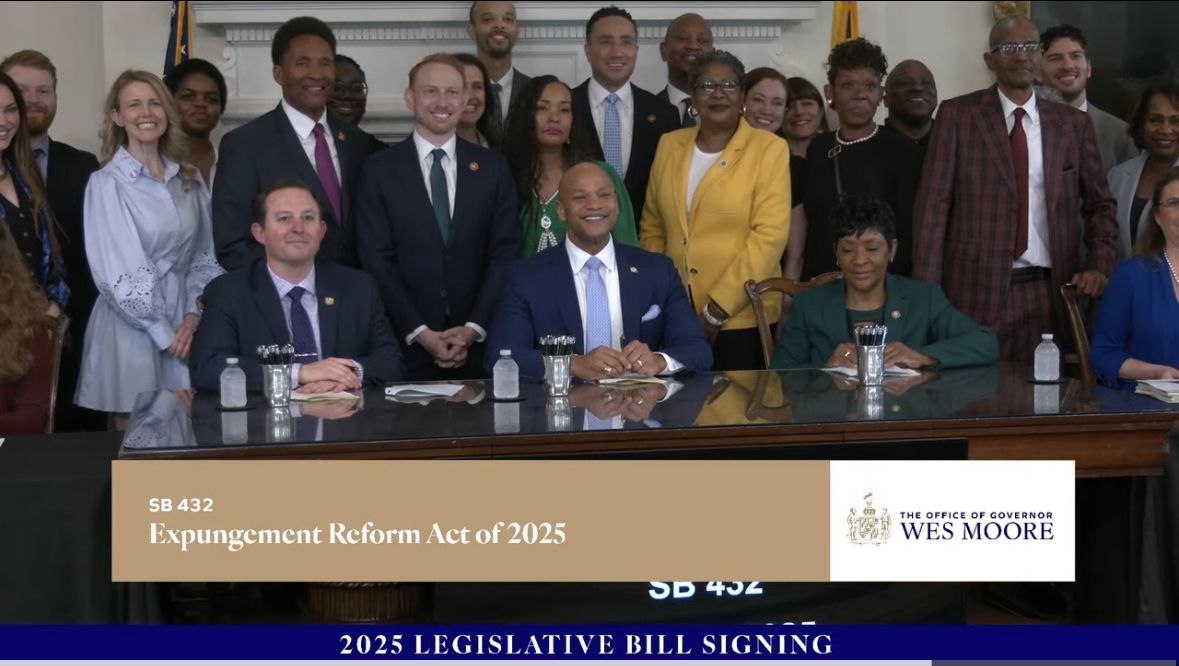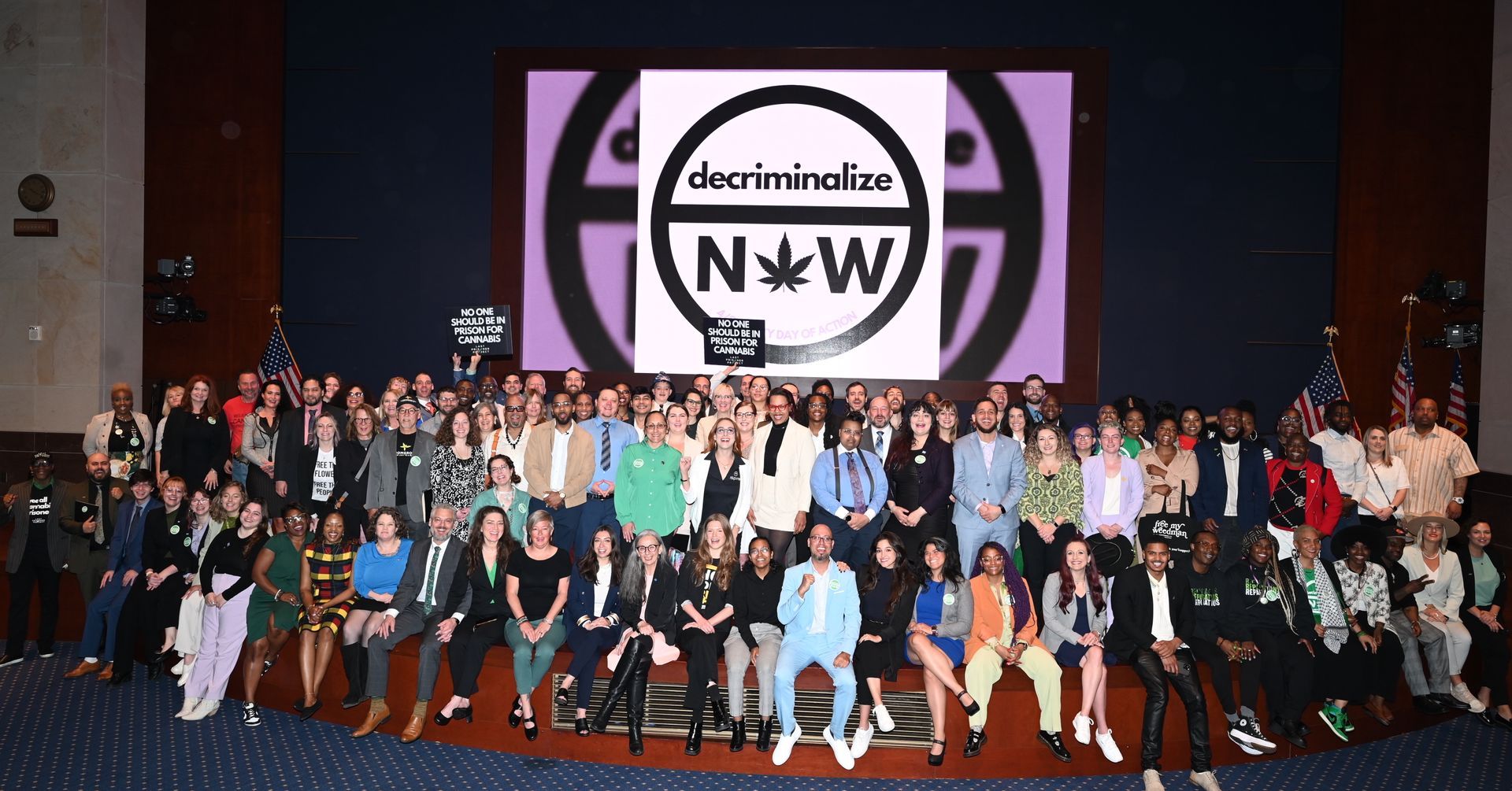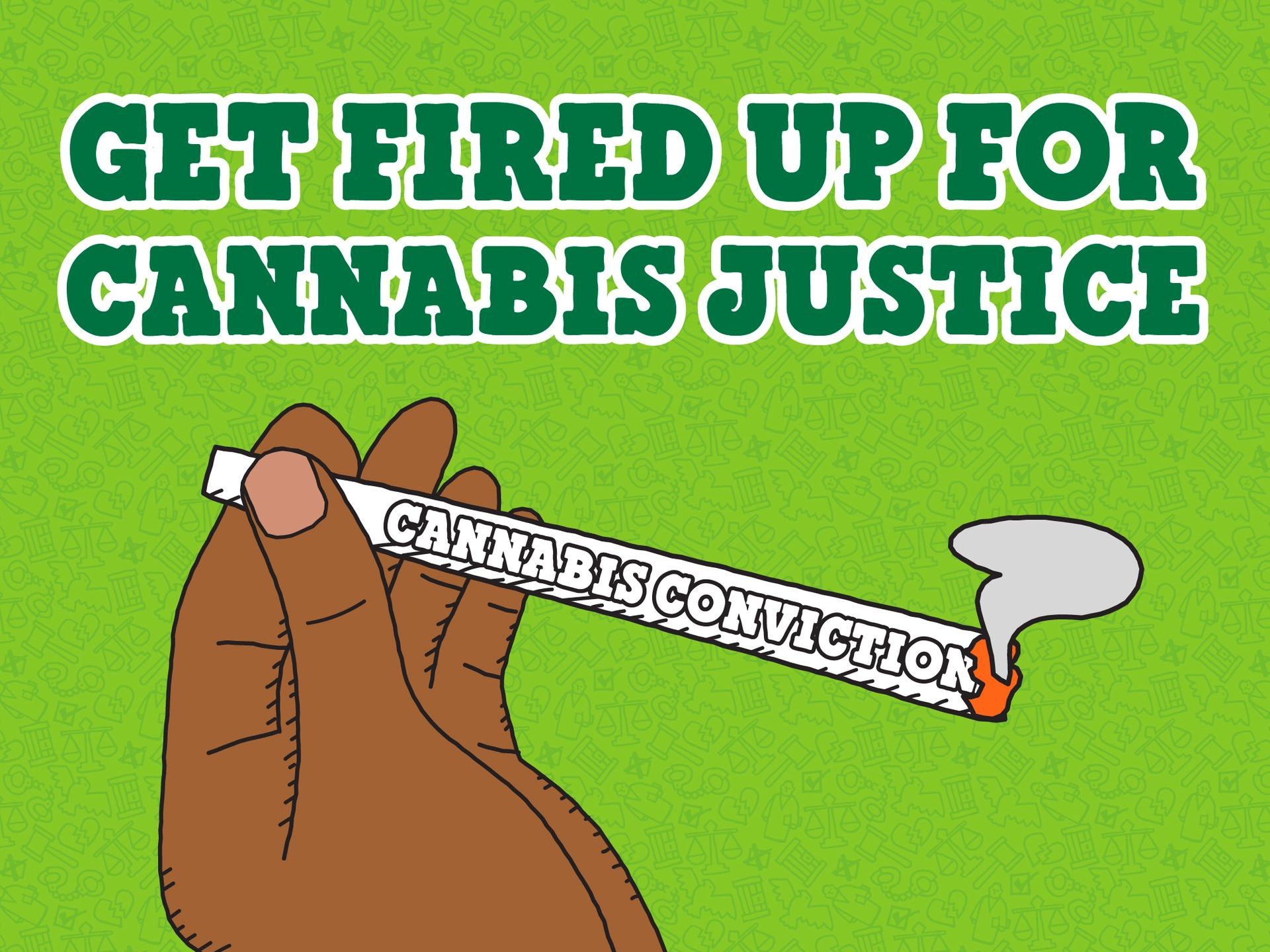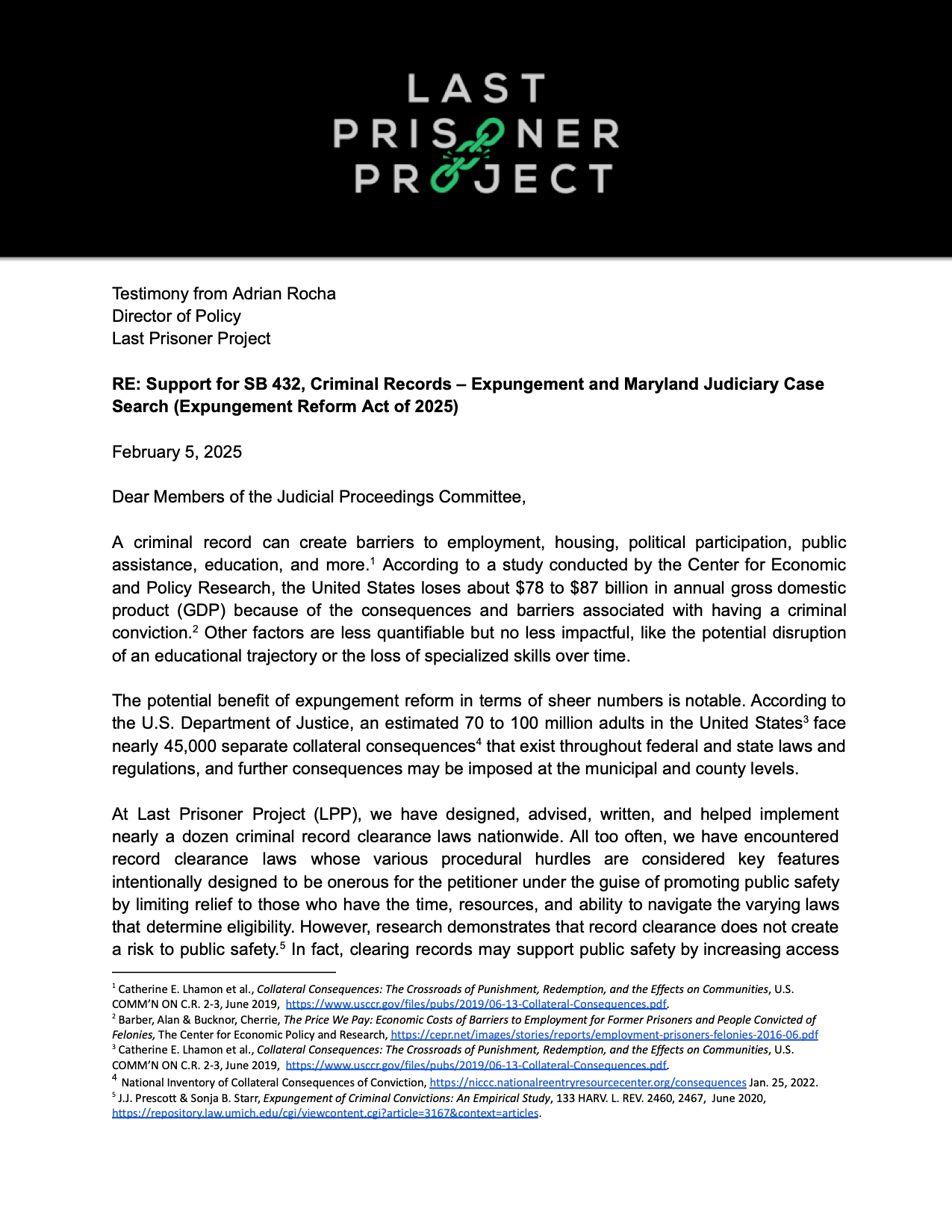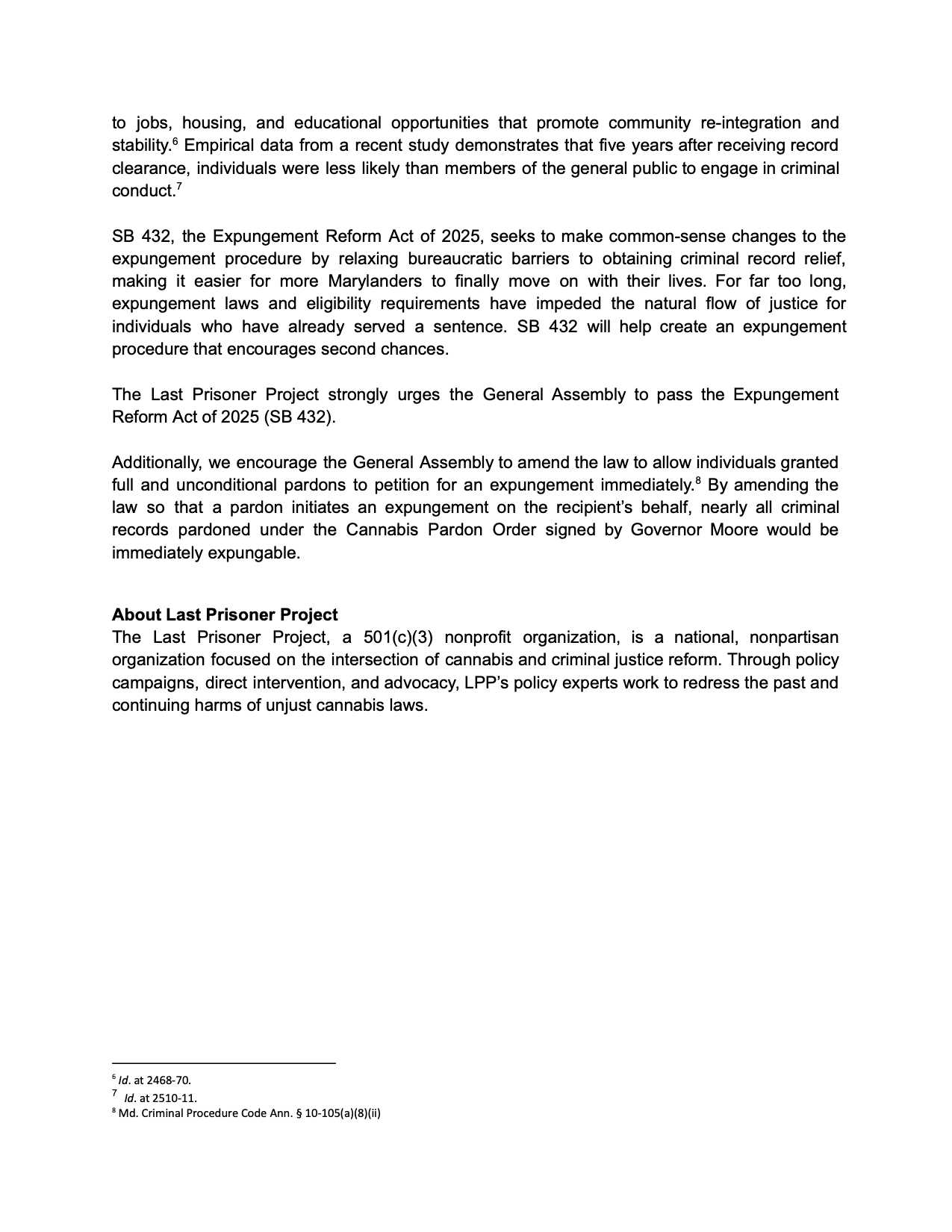Maryland Must Build on Record Relief Progress with the Expungement Reform Act (SB 432)
At the Last Prisoner Project (LPP), we know that those burdened by past cannabis convictions deserve true justice by getting their criminal records fully expunged and allowing individuals to move forward without the lifelong barriers. In Maryland, where Governor Wes Moore made history last year by issuing the nation’s most sweeping cannabis pardon order, we are now calling on lawmakers to take the next step: passing SB 432, the Expungement Reform Act of 2025.
A criminal record—whether for a conviction or even just an arrest—can create lasting obstacles to employment, housing, education, and other opportunities. The impact is not just personal; according to research from the Center for Economic and Policy Research, the U.S. economy loses between $78 and $87 billion annually due to employment barriers faced by people with criminal records. These collateral consequences compound the injustices of the War on Drugs and disproportionately affect communities already marginalized by systemic inequities.
SB 432 seeks to simplify the expungement process, removing unnecessary bureaucratic hurdles and making it easier for individuals to clear their records. The bill will help thousands of Marylanders—many of whom have already served their sentences—access new opportunities and contribute fully to their communities.
In 2024, Governor Wes Moore demonstrated bold leadership by granting pardons to over 175,000 Marylanders with low-level cannabis convictions. This was a critical step toward undoing decades of harm caused by cannabis prohibition. However, the reality is that while a pardon provides some relief, it does not automatically erase a record. Individuals must still navigate complex legal procedures to have their records expunged—a process that can be costly, time-consuming, and confusing.
LPP urges the Maryland General Assembly to amend SB 432 to ensure that individuals granted full and unconditional pardons can have their records expunged automatically. Without this critical update, many of those pardoned under Governor Moore’s order will still face barriers to jobs, housing, and other essential services, despite having been officially forgiven by the state. Adrian Rocha, LPP's Policy Director, was recently appointed to the governor's roundtable on expungement, where we hope to provide further expertise on how to fully effectuate cannabis justice through retroactive relief.
Research shows that record clearance not only benefits individuals but also strengthens communities. A recent study found that five years after receiving expungement, individuals were less likely to engage in criminal conduct than members of the general public. By increasing access to jobs, housing, and educational opportunities, expungement promotes community reintegration and stability—key factors in public safety.
Moreover, Maryland has the opportunity to join 12 other states that have implemented state-initiated expungement for certain offenses, recognizing that individuals should not be required to navigate complex legal systems to obtain relief they are already entitled to.
Maryland has already taken significant steps toward cannabis justice, but the job is not done. Passing SB 432 and ensuring automatic expungement for those granted clemency will solidify the state’s commitment to meaningful criminal justice reform.
LPP urges the General Assembly to pass SB 432 and amend it to ensure that those who have received full pardons under Governor Moore’s order do not have to wait or fight for the relief they were promised. This is about more than policy—it’s about restoring dignity, removing barriers, and allowing Marylanders to build better futures.
The time for action is now. Maryland’s commitment to justice through record relief must extend beyond pardons. Let’s finish what we started.
Read our full testimony below:
